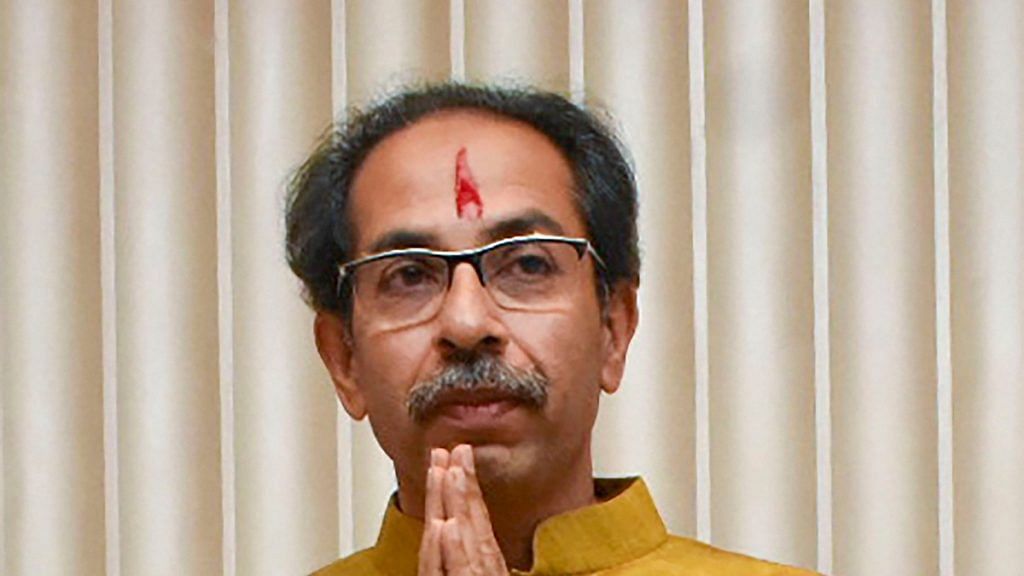New Delhi: Maharashtra is the Indian state with the highest number of Covid-19 cases, but amid the outbreak, a constitutional crisis is also brewing. Chief Minister Uddhav Thackeray, who took oath on 28 November at the head of a three-party coalition, Maha Vikas Aghadi, has just about a month to save his chair, because he is not a member of either House of the Maharashtra legislature.
Article 164(4) of the Constitution allows a non-legislator to occupy a post in the council of ministers, including the office of the chief minister, only for six months. If he doesn’t do so, the Constitution says he “ceases to be a minister”.
That gives Thackeray time until 28 May to become an MLA or an MLC, and he was hoping to get elected to the Maharashtra Legislative Council. MLAs were supposed to elect nine MLCs on 26 March, but the election was postponed indefinitely due to the Covid-19 pandemic.
Then, the state cabinet on 9 April recommended that Governor Bhagat Singh Koshyari nominate Thackeray to the Legislative Council.
Article 171 of the Constitution allows the governor to nominate certain members to the Legislative Council. The nominated members must be “persons having special knowledge or practical experience in respect of such matters as the following, namely: Literature, science, art, co-operative movement and social service”.
There are currently two vacancies due to the resignation of two NCP legislators who joined the BJP before last year’s assembly polls. But Koshyari hasn’t made a decision yet, and the term of these two nominated members is scheduled to end on 6 June.
Constitutional experts ThePrint spoke to could not agree on whether the governor should nominate Thackeray. They shared details about other options available to the chief minister.
Also read: Lockdown casts a cloud over Uddhav Thackeray’s election to legislature and smooth run as CM
Three options
Constitutional expert and former Lok Sabha secretary general Subhash Kashyap told ThePrint that there are three options before Thackeray.
First, he can be nominated as a member of the Legislative Council by the Governor. This would fulfil the requirement of him becoming a member of the legislature within six months.
“The second option that is being thought of, as I understand, is that he resigns, and after a day or two, is reappointed, so that the six-month period starts again,” Kashyap said.
But both these options, in his view, “are against constitutional propriety and would amount to a subterfuge for doing indirectly what the Constitution prohibits”.
A similar route was taken by Congress member Tej Parkash Singh, who was appointed as a minister in Punjab in 1995. He resigned at the end of the six-month period, and was reappointed in 1996 without getting elected to the state assembly. The Supreme Court, in 2001, ruled that this was “improper, undemocratic, invalid and unconstitutional”, but by then the assembly had already completed its term, and hence, it did not impact Tej Parkash.
The third alternative for Thackeray, Kashyap said, is that the governor appoints someone else as a “caretaker chief minister”.
“There is no specific provision for a caretaker chief minister in the Constitution, but anybody can be appointed as the chief minister by the governor, subject to the governor’s instruction… So he can be appointed for the interim period, and after some time, Thackeray can get elected to one of the two houses and can be reappointed as the chief minister,” he said.
Also read: Uddhav Thackeray has failed to handle Covid crisis. Bring in Army to save Mumbai
‘No legal hitch in nominating Thackeray’
However, another former secretary-general of the Lok Sabha and constitutional expert P.D.T. Achary said there isn’t any constitutional or legal hitch in the governor nominating Thackeray to the Legislative Council.
Achary referred to reports which claimed that Section 151A of the Representation of the People Act, 1951, acted as a hurdle in this nomination, because the term expires on 6 June. This provision says election to the post cannot be done if “the remainder of the term of a member in relation to a vacancy is less than one year”.
But Achary told ThePrint that the provision talks about elected members and not nominated members.
He asserted that the governor has “no other option” but to nominate Thackeray, as he is bound by the cabinet’s recommendation.
He emphasised that this is not “governor’s quota”, and is a requirement laid down by the Constitution.
Also read: No communal angle to Palghar, strict action against those fuelling hate: Uddhav Thackeray
‘Not the time to settle political scores’
Constitution expert Faizan Mustafa also asserted that the governor should accept the recommendation made by the state cabinet and nominate Thackeray to the Legislative Council. Mustafa clarified that if the governor accepts the recommendation, he would not be violating any provision of the Constitution.
Highlighting the “extraordinary situation” prevailing in the country due to Covid-19, he said: “Maharashtra is the worst-affected state and Uddhav Thackeray has been leading from the front… I don’t think that for our political interests, we should have a constitutional crisis under which he will have to resign, and a new leader will have to be elected.”
He added: “This is not the time for political scores being settled, and one more state being brought under the control of BJP.”
Also read: If Uddhav Thackeray bows before Arnab Goswami’s dare, he will only weaken himself before BJP
